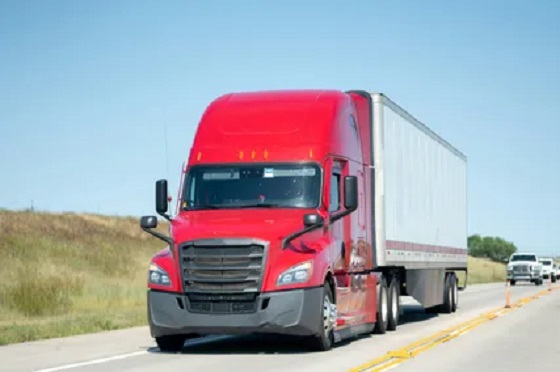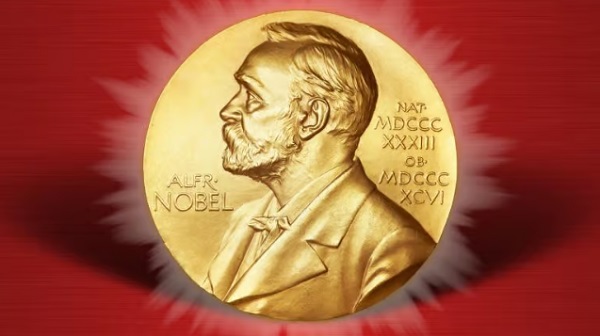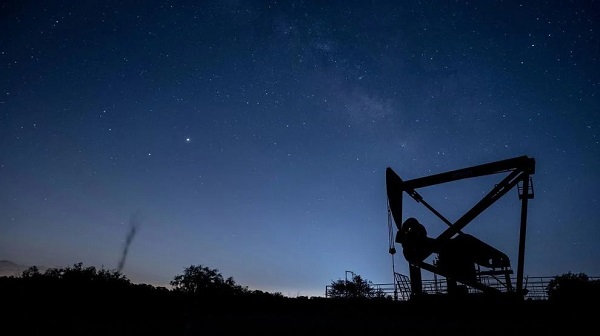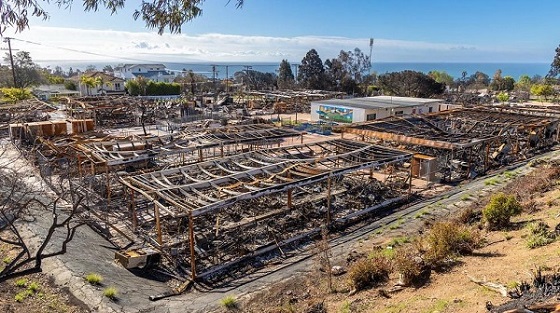Alberta
Deirdra Dionne one of 14 to be inducted to Alberta Sports Hall of Fame

Alberta Sports Hall of Fame Introduces 2020 Inductees
Red Deer claims Deidra Dionne as their own, and so they should. Her skiing career took off – literally – when she moved with her family to the city in 1982 and joined the Red Deer Freestyle Club at Canyon Ski Resort. It wasn’t long before she began excelling on a provincial, national, and eventually, international stage.
“We are proud to welcome these new Honoured Members into the Hall,” said Kinsella. “Their contributions to sport in our province are incredible and humbling. They have truly earned the right to have their names added to our Hall.” – Tracey Kinsella, Executive Director, Alberta Sports Hall of Fame. On May 29th, an induction banquet and ceremony will be held at the Cambridge Red Deer Hotel and Conference Centre where this group will officially be welcomed into the Alberta Sports Hall of Fame. Included are five athletes, four builders and five award winners.
The newest athletes joining the Alberta Sports Hall of Fame are:
Deidra Dionne (Athlete, Skiing); Bronze medalist in women’s aerials at the 2002 Salt Lake City Winter Olympics.
Chris Phillips (Athlete, Hockey): A stay-at-home defenceman and the longest-serving player in Ottawa Senators franchise history.
Kelly Sutherland (Athlete, Chuckwagon Racing): Twelve-time Calgary Stampede Rangeland Derby Championships, and seven Calgary Stampede Aggregate titles.
Michael Robertson (Athlete, Snowboardcross): Silver medalist at the 2010 Vancouver Winter Olympics. This year’s builders include:
Jan Ullmark (Builder, Figure Skating): Jan is an elite coach whose skills have made an indelible mark on the sport of figure skating in Canada.
Terry Morris (Builder, Curling): Terry has been active in the promotion and development of the sport of curling in Alberta and across the nation for the better part of four decades.
Ken Babey (Builder, Hockey): In his nearly three decades behind the bench of the Southern Alberta Institute of Technology (SAIT) Trojans men’s hockey team, Ken Babey guided the team to unparalleled success.
Derek Douglas (Builder, Soccer): The first soccer referee from Alberta to attain the position of FIFA International Referee in 1986, Derek has also been instrumental in growing the game in Sherwood Park, Edmonton and throughout the province.
This year’s Award winners are:
Nancy Southern & Ian Allison (Bell Memorial Award): As the team who pioneered equestrian sport broadcasting in Alberta, they are the first duo to be awarded the Bell Memorial Award.
John Currie (Achievement Award): As president of the 1983 Western Canada Summer Games, John led the development and funding of the game’s flagship facility – the Repsol Sport Centre.
Stan Wakelyn (Pioneer Award, Soccer): In 1922, Calgary Hillhurst FC won the Dominion of Canada Football Championship, with Stan, a centre forward, as team captain.
Dennis Kadatz (Legacy Award): At 22, Dennis guided the Edmonton Huskies Junior Football Team to three consecutive Canadian Championships in 1962, 1963 and 1964. In 1964, Dennis became head coach of the University of Calgary’s fledgling football program.
For more information, please contact Tracey Kinsella, Alberta Sports Hall of Fame Executive Director, at (403) 341-8614 or via email at [email protected].
Detailed bios of each athlete:
Deidra Dionne –Skiing Athlete

Deidra Dionne was a trailblazer for today’s athletes competing in the sport of freestyle skiing in Canada. Born in North Battleford, Saskatchewan, Deidra’s skiing career took off – literally – when she moved with her family to Red Deer in 1982 and joined the Red Deer Freestyle Club at Canyon Ski Resort. It wasn’t long before she began excelling on a provincial, national, and eventually, international stage. Her accomplishments are exceptional: silver at the 2008 Canadian Freestyle Championships, 2000 World Cup Freestyle Rookie of the Year, bronze medals at both the 2001 and 2003 World Championships, and a bronze medal in women’s aerials at the 2002 Salt Lake City Winter Olympics. Despite breaking her neck in a training accident in September 2005, Deidra battled back to compete at the 2006 Turin Olympics.
Chris Phillips – Hockey Athlete

Calgary’s Chris Phillips began his junior hockey career at the age of 15 with the Fort McMurray Oil Barons of the Alberta Junior Hockey League (AJHL), before joining the Western Hockey League’s (WHL) Prince Albert Raiders in time for the 1995-96 season. In 61 games with the Raiders, Chris scored 10 goals and added 30 assists on his way to winning Jim Piggott Memorial Trophy as the league’s top rookie. Midway through the 1996-97 season, the Raiders traded Chris to the Lethbridge Hurricanes, where he helped lead the Hurricanes to the Memorial Cup Final, which they lost to the Hull Olympique. Chris won two gold medals as a member of Canada’s World Junior Hockey Team in both 1996 and 1997. Chris was drafted first overall by the Ottawa Senators at the 1996 NHL Entry Draft, and would spend his entire NHL career with the team. Chris began his career during the 1997–98 season and retired following the 2015–16 season, after spending the entire season on the injured list. A stay- at-home defenceman, Chris played 1,179 games with Ottawa in the regular season and playoffs, making him the longest-serving player in Senators franchise history. During his NHL career, Chris scored 71 goals to go along with 217 assists.
Kelly Sutherland – Chuckwagon Racing Athlete

You have to look no further that Kelly Sutherland’s nickname to understand the impact he had on his chosen sport of chuckwagon racing: “The King.” He was racing at the age of 14, driving by the age of 16, and winning at the age of 22. With a career that spanned five decades, Kelly remains one of the most important influences in the sport’s history. He won an astounding 12 world championships – his first in 1974 and his final one in 2011 at the age of 60. Kelly is perhaps best known for his success at the Calgary Stampede. Over the course of his career, he won 12 Calgary Stampede Rangeland Derby Championships, and seven Calgary Stampede Aggregate titles. He also won nine Ponoka Stampede titles and one in his hometown of Grande Prairie. In 2010, Kelly was the first torchbearer of day eight of the 2010 Vancouver Olympic Winter Games torch relay and in 2011 he shared the sport with Prince William and Catherine, Duke and Duchess of Cambridge, during their visit to the Calgary Stampede. Kelly retired from racing in 2017. In his 48 seasons behind the reins, he placed in the top 10 overall 41 times.
Michael Robertson – Snowboardcross Athlete

Michael Robertson was always a gifted athlete – he played hockey and soccer from the
age of five before transitioning to competitive snowboarding at the age of 13. A member of a small team from Rabbit Hill Snow Resort, just south of Edmonton, Mike became provincial champion in his age group at the age of 14. Two years later, he transitioned to the sport of snowboardcross, where his competitive nature and dedication to his chosen craft, allowed him to quickly excel at the sport. Michael joined the National Development Team at 17 before progressing to the National Team, where he would remain until his career was cut short by injuries at the age of 27. During his career on the World Cup tour, Michael was often in the top 10, earning two silver and one bronze medal along the way. Heading into the 2010 Vancouver Winter Olympics, Michael was ranked fifth on the tour. In his semi-final, Michael avoided an early collision involving the other three competitors to run away with the race. In the final, Michael got out to the early lead and held it until Seth Wescott caught him at the second last turn to deny him the gold. Since his retirement, Michael has coached a number of Alberta snowboardcross teams, the National Para Olympic team, and acts as an ambassador to Kidsport.
Jan Ullmark – Figure Skating Builder

Since arriving in Alberta in 1973, Jan Ullmark and his elite coaching skills have made an indelible mark on the sport of figure skating in Canada. As the Director of Skating at Edmonton’s Royal Glenora Club, Jan elevated the club to prominence as one of the country’s top training centres. Under his tutiledge, the club began to consistently produce national and international competitors. Among the athletes who benefited from his guidance were Michael Slipchuk, who won the 1992 Canadian Championship; Jane Gray; as well as the team of Jaime Sale and David Pelletier, who went on to win gold in pairs figure skating at the 2002 Salt Lake City Winter Games. With his induction into the Alberta Sports Hall of Fame, Jan joins his former proteges Slipchuk, Sale and Pelletier as an honoured member. For the past 20 years, Jan and his wife, Cynthia, have hosted a skating camp in Canmore which welcomes skaters from across the province to train under their guidance.
Terry Morris – Curling Builder

Terry has been active in the promotion and development of the sport of curling in Alberta and across the nation for the better part of four decades. During that time, most of Terry’s exploits have flown under the radar, including his efforts to unite the sport’s governance structure which led to the establishment of the Alberta Curling Federation, as well as the Northern Alberta Curling Association. His incredible administrative and organizational skills allowed Terry to play an integral role on the organizing committees of every major curling event held in Edmonton since 1987, including the 1987 Brier, the 1999 Brier, and the 2005 Brier – the largest and most successful Brier in its history. He has also played an important role in the success of the 2007 Ford World Men’s Curling Championship, and the 2009 Tim Hortons Roar of the Rings Canadian Curling Trials. Today, Terry continues to work with as an event manager with Curling Canada.
Ken Babey – Hockey Builder

In his nearly three decades behind the bench of the Southern Alberta Institute of Technology (SAIT) Trojans men’s hockey team, Ken Babey guided the team to unparalleled success on and off the ice while becoming the most successful coach in Canadian post-secondary hockey history. From 1987-2014, Ken picked up a total of 534 regulation and playoff wins, nine Alberta Colleges Athletic Conference (ACAC) championships, seven ACAC Coach of the Year awards, one Canadian College Athletic Association (CCAA) title (2000), and two CCAA silver medals (1992 and 1997). He also set over 15 ACAC career coaching records.
In June 2014, Ken announced he was stepping down as the Trojans coach, walking away with a career winning percentage of .681. Following a brief retirement, Ken was recruited to step behind the bench of the national men’s para ice hockey (previously known as sledge hockey) team. It didn’t take long for him to make his mark – the team took back-to-back silver medals at the world championships in 2015 and 2016 before winning gold at the 2017 championships in South Korea. At the 2018 Paralympic Winter Games in PyeongChang,
Ken led Team Canada to the gold medal game, where they lost 2-1 to the United States in overtime. Ken was previously inducted into the Alberta Hockey Hall of Fame in 2015.
Derek Douglas – Soccer Builder

Derek Douglas was born in Edinburgh, Scotland in 1942 with a love of football – a love he brought with him when he immigrated to Canada with his family in 1957. In his family’s adopted hometown of Vancouver, BC, Derek would hone his goaltending skills playing on teams alongside his brothers. In 1973, Derek was relocated to Edmonton for work, settling in Sherwood Park with his young family. As soccer was so new in the growing community, Derek and his wife found roles as coaches with their children’s teams. Derek also began officiating soccer that same year, and would serve two terms as president of the Sherwood Park District Soccer Association between 1975 – 1979. In 1981, Derek’s hard work and dedication to the sport were recognized when he was promoted to the position of National Soccer Referee. By 1982, Derek was officiating professional soccer games in the North American Soccer League, while also maintaining his commitments to soccer in his home community. In 1986, Canada Soccer promoted Derek to the top position a soccer official can become: a FIFA International Referee, the first one from Alberta. In an officiating career that lasted from 1981-2000 at the national and international level, Derek officiated games across North and Central America. Following the 1996 Atlanta Summer Olympics, Derek shifted his focus to the development of female soccer officials locally, nationally, and internationally. At the age of 75, he continues to grow the sport locally as a part-time referee coordinator in Sherwood Park.
Nancy Southern & Ian Allison – Bell Memorial Award
As the team who pioneered equestrian sport broadcasting in Alberta, Nancy Southern
and Ian Allison are the first duo to be awarded the Bell Memorial Award. Since opening in southwest Calgary in 1975, Spruce Meadows has raised the profile of show jumping on a provincial, national and global level. Nancy and Ian helped develop the first digital TV studio in 1990, which was quite progressive at the time. Before opening the studio, Nancy and Ian spent as much time as they could learning from the experts. During the 1988 Calgary Winter Olympics, the duo had the opportunity to shadow a number of ABC Television producers. The next year, Nancy attended the Electronic Festival in Cannes as a guest of ABC. She used her time to learn about the necessities to build a top-flight studio. In the studio’s early years it attracted the attention of CTV’s Wide World of Sports, which televised Spruce Meadows’ Grand Prix. This led to the “Spruce Meadows Today” series, which aired on the network for 25 years. Ian, “the Voice of Spruce Meadows,” lends his talents to the CBC broadcast team covering the Spruce Meadows events, and was the colour commentator for the show jumping events at the 2016 Summer Games in Rio de Janeiro, Brazil. He was also the co-announcer at the 2017 World Equestrian Games in Normandy, France. Today, Spruce Meadows Television Production Unit produces over 130 hours of programming for distribution in over 110 countries worldwide.
John Currie – Achievement Award
John Currie’s vision and dedication to Alberta amateur sport is unquestioned. John was a pivitol figure as president of the 1983 Western Canada Summer Games in Calgary, helping in the development and funding of the game’s flagship facility – the Repsol Sport Centre (previously known as Lindsay Park Sports Centre and then Talisman Centre). At the time it was constructed, the RSC was the largest multi-sport complex of its kind in Canada. During the games, over 2,500 athletes from the four western provinces and the Northwest Territories competed in 23 summer Olympic sports. Since then, the centre has been the training ground for countless amateur athletes, as well as numerous Olympic and Paralympic athletes. John commitment to amateur sport in Calgary and throughout Alberta allowed him to lend his expertise to countless boards and foundations, including the Alberta Sports Hall of Fame and Museum. The John Currie Amateur Sports Legacy Fund, a lasting legacy of the games, has awarded bursaries to over 100 amateur athletes since 2013.
Stan Wakelyn – Pioneer Award
If you are a successful soccer player in Alberta, you can trace some of that success back to Stan Wakelyn. Born in Sunderland, England, Stan moved to Calgary at the age of 15 and remained there until his death in 1976. Throughout the 1910’s and 1920’s, Stan, three of his brothers, and his father were members of the storied Calgary Hillhurst FC Soccer Club. Stan’s time with the club was interrupted during World War I, where he served alongside five of his brothers. In 1922, Calgary Hillhurst FC won the Dominion of Canada Football Championship, with Stan, a centre forward, as team captain. It was the only time in the championship’s first 60 years that it was won by a team hailing from Alberta. From 1922-24, Stan guided Hillhurst to three straight Bennett Shield provincial titles. He also played on a Calgary all-star team that faced off against a number of international teams from England and Scotland that were touring Canada. Stan worked for Canada Post for 38 years and was also a member
of the Royal Canadian Legion No. 1 Branch. In 1950, Stan was a finalist for the Canadian Press Best in 50 Years Footballers; in 2012, as part of the Canadian Soccer Association’s Centennial, Stan was honoured as one of the country’s top 100 Men’s Footballers; and in 2018 he was elected to the Canada Soccer Hall of Fame.
Dennis Kadatz – Legacy Award
Raised on his family’s farm southeast of Edmonton, Dennis played football at the University of Alberta while pursuing his Bachelor’s of Physical Education. At 22, Dennis became the head coach on the Edmonton Huskies Junior Football Teams, guiding them to three consecutive Canadian Championships in 1962, 1963 and 1964. At the 1965 Canadian championship, the Huskies narrowly missed a fourth national title, losing 2-1. In 1964, Dennis’ legacy on the gridiron would be cemented when he was hired as head coach by the University of Calgary to help launch their fledgling football program, a role he would hold until 1968. Dennis was appointed as U of C’s first Athletic Director in 1966 and would remain in that position until 1985. He would also add the title of Associate Dean in the Faculty of Eduction in 1980, where he oversaw the design of both Jack Simpson Gym and the Olympic Oval. In 1985, Dennis was recruited to oversee another group in its infancy – the Calgary Olympic Development Association. First as general manager (1985-1992) and then as president (1992-1999), Dennis grew CODA into the most-successful post-Olympic organization in the world. Dennis was previously inducted into the Alberta Sports Hall of Fame in 2005 as a member of the 1962-1964 Edmonton Huskies and in 2010 with the 1983-85 University of Calgary Dinos.
Click for stories and videos of some of the recent inductees into the Alberta Sports Hall of Fame.
For more information about the Alberta Sports Hall of Fame, click here.
Alberta
Enbridge CEO says ‘there’s a good reason’ for Alberta to champion new oil pipeline

Enbridge CEO Greg Ebel. The company’s extensive pipeline network transports about 30 per cent of the oil produced in North America and nearly 20 per cent of the natural gas consumed in the United States. Photo courtesy Enbridge
From the Canadian Energy Centre
B.C. tanker ban an example of federal rules that have to change
The CEO of North America’s largest pipeline operator says Alberta’s move to champion a new oil pipeline to B.C.’s north coast makes sense.
“There’s a good reason the Alberta government has become proponent of a pipeline to the north coast of B.C.,” Enbridge CEO Greg Ebel told the Empire Club of Canada in Toronto the day after Alberta’s announcement.
“The previous [federal] government’s tanker ban effectively makes that export pipeline illegal. No company would build a pipeline to nowhere.”
It’s a big lost opportunity. With short shipping times to Asia, where oil demand is growing, ports on B.C.’s north coast offer a strong business case for Canadian exports. But only if tankers are allowed.
A new pipeline could generate economic benefits across Canada and, under Alberta’s plan, drive economic reconciliation with Indigenous communities.
Ebel said the tanker ban is an example of how policies have to change to allow Canada to maximize its economic potential.
Repealing the legislation is at the top of the list of needed changes Ebel and 94 other energy CEOs sent in a letter to Prime Minister Mark Carney in mid-September.
The federal government’s commitment to the tanker ban under former Prime Minister Justin Trudeau was a key factor in the cancellation of Enbridge’s Northern Gateway pipeline.
That project was originally targeted to go into service around 2016, with capacity to ship 525,000 barrels per day of Canadian oil to Asia.
“We have tried to build nation-building pipelines, and we have the scars to prove it. Five hundred million scars, to be quite honest,” Ebel said, referencing investment the company and its shareholders made advancing the project.
“Those are pensioners and retail investors and employees that took on that risk, and it was difficult,” he said.
For an industry proponent to step up to lead a new Canadian oil export pipeline, it would likely require “overwhelming government support and regulatory overhaul,” BMO Capital Markets said earlier this year.
Energy companies want to build in Canada, Ebel said.
“The energy sector is ready to invest, ready to partner, partner with Indigenous nations and deliver for the country,” he said.
“None of us is calling for weaker environmental oversight. Instead, we are urging government to adopt smarter, clearer, faster processes so that we can attract investment, take risks and build for tomorrow.”
This is the time for Canadians “to remind ourselves we should be the best at this,” Ebel said.
“We should lead the way and show the world how it’s done: wisely, responsibly, efficiently and effectively.”
With input from a technical advisory group that includes pipeline leaders and Indigenous relations experts, Alberta will undertake pre-feasibility work to identify the pipeline’s potential route and size, estimate costs, and begin early Indigenous engagement and partnership efforts.
The province aims to submit an application to the Federal Major Projects Office by spring 2026.
Alberta
The Technical Pitfalls and Political Perils of “Decarbonized” Oil

By Ron Wallace
The term “decarbonized oil” is popping up more and more in discussions of Canada’s energy politics. The concept refers to capturing and storing carbon dioxide (CO₂) generated during oil production and processing, thereby reducing greenhouse gas emissions, in order to support the continued strength of Canada’s oil and natural sector, the nation’s number-one export earner and crucial to the economies of Alberta and Saskatchewan. Projects like the Weyburn Carbon Capture, Utilization and Sequestration Project in Saskatchewan have demonstrated the idea’s technical feasibility by sequestering 1.7 million tonnes of CO₂ annually while producing incremental oil.
The key question now is whether this type of process can be dramatically scaled up – by anywhere from six to over 20 times – to facilitate what Alberta Premier Danielle Smith has termed a “grand bargain”: using carbon capture and storage (CCS) to gain a greenlight from the federal government for a new oil export line to the West Coast, enabling Alberta to continue growing oil production and generating jobs while advancing Ottawa’s climate goals. Prime Minister Mark Carney may be prone to hedging and ambiguity, but he has now made it clear that any such pipeline will indeed be contingent on Alberta proving it can “decarbonize” its oil
production.
The Pathways Alliance, a group of six producers representing 95% of Canada’s oil sands production, has designed a $16.5 billion CCS network to capture and store CO₂ from up to 20 facilities, aiming for 11 million tonnes per year in Phase 1 and a breathtaking 40 million tonnes in Phase 2. Pathways is intended to help build consensus in favour of a new oil export pipeline that could enable up to 25% growth in Alberta’s oil production – generating possibly $20 billion per year in export revenues.
While credible critics, including the Institute for Energy Economics and Financial Analysis (IEEFA) and energy economist Jennifer Considine, highlight the high costs, uncertain revenues and poor returns from several other attempts at large-scale CCS, Alberta’s UCP government appears to view it as the way out of its current impasse with Ottawa. It believes the profits generated from exports of Alberta’s decarbonized oil could themselves help finance the CCS facilities required for the “grand bargain” to be sealed.
Smith has been keeping up the political pressure, recently announcing that Alberta will fund and lead the effort to submit a formal pipeline application to the Carney government’s new Major Projects Office. Major obstacles remain, but none is more serious than Carney maintaining predecessor Justin Trudeau’s suite of anti-energy policies, particularly the draft oil and natural gas emissions cap, as part of his government’s intention to meet net-zero targets by 2050 (although Carney has recently indicated some flexibility in this view). Smith argues that this is effectively an “unconstitutional” production cap that threatens Alberta’s economic future, vowing to challenge it legally if Carney doesn’t shelve it.
Smith’s government at the same time is pursuing a more conciliatory tactic, offering to help advance federal climate objectives through CCS in order to speed up pipeline approvals under Carney’s Bill C-5. In this track, there is a question as to whether Alberta may be walking into an economic and technological trap that it will regret.
That is because the “grand bargain” would create two different classes of oil in Canada, operating under different sets of regulations and resulting in different cost structures. Western Canada’s crude oil producers would shoulder costly and technically challenging decarbonization requirements – plus the threat of federal veto over any new oil projects that weren’t similarly “decarbonized”. Canadian-produced oil would enter international export markets at a significant if not ruinous competitive disadvantage, risking not only profitability but market share. Eastern Canada’s oil refiners, meanwhile, would remain free to import fully “carbonized”
oil at the lowest prices they could get from countries with significantly looser environmental standards.
The Alberta oil sands currently generate 58% of Canada’s total oil output. Data from December 2023 shows Alberta producing a record 4.53 million barrels per day as major oil export pipelines including Trans Mountain, Keystone and the Enbridge Mainline operated at near capacity. The same year, Eastern Canada imported on average about 490,000 barrels per day by pipeline and sea from the United States (72.4%), Nigeria (12.9%) and Saudi Arabia (10.7%). Since 1988, imports by marine terminals along the St. Lawrence River have exceeded $228 billion, while imports by New Brunswick’s Irving Oil Ltd. refinery totalled $136 billion from 1988 to 2020.
The economic viability of large-scale CCS projects remains completely unproven; indeed, attempts to date in other jurisdictions have performed poorly. Attempting to “decarbonize” Alberta’s oil, then, makes little economic sense; it appears to be based more on the Carney government’s ideological objectives set to achieve global climate objectives.
The question thus becomes why Alberta is agreeing to a policy that could trap its taxpayers in a hugely expensive and unfair system that could imperil consideration of any new pipelines for Canadian oil exports, especially when private capital already largely remains on the sidelines.
Not only Albertans but Canadians generally need to carefully reconsider any “grand bargain” that hinges on “decarbonization” of western Canadian oil, because doing so threatens the economic viability of Alberta oil production and associated export pipelines – without meaningfully reducing global CO 2 emissions. And if industry proves unable to raise the vast capital required to construct the CCS projects, while lacking the cash flow to cover the steep ongoing costs needed to operate them, then where is the money to come from? At a time when Canada’s fiscal trajectory is so worrisome, the shortfall had better not be made up through public subsidies.
Even worse than the yawning fiscal risks, such an approach risks splitting the country into two economic zones: a West burdened by costly decarbonization requirements making Alberta’s oil some of the world’s least profitable to produce, and an East benefiting as before from cheaper imported oil. This is hardly conducive to national unity. It is time for Alberta to reconsider the “grand bargain”.
The original, full-length version of this article was recently published in C2C Journal.
Ron Wallace is a former Member of the National Energy Board.
-

 Business2 days ago
Business2 days agoTruckers see pay surge as ICE sweeps illegal drivers off U.S. highways
-

 International2 days ago
International2 days agoHamas releases all living hostages under Trump peace plan
-

 Business18 hours ago
Business18 hours agoFinance Committee Recommendation To Revoke Charitable Status For Religion Short Sighted And Destructive
-

 Alberta18 hours ago
Alberta18 hours agoOil Sands are the Costco of world energy – dependable and you know exactly where to find it
-

 Brownstone Institute2 days ago
Brownstone Institute2 days agoTrump Covets the Nobel Peace Prize
-

 Health16 hours ago
Health16 hours agoColorado gave over 500 people assisted suicide drugs solely for eating disorders in 2024
-

 Energy18 hours ago
Energy18 hours agoIndigenous Communities Support Pipelines, Why No One Talks About That
-

 Business2 days ago
Business2 days agoNetherlands Seizes Chinese-Owned Chipmaker in Unprecedented Security Move






